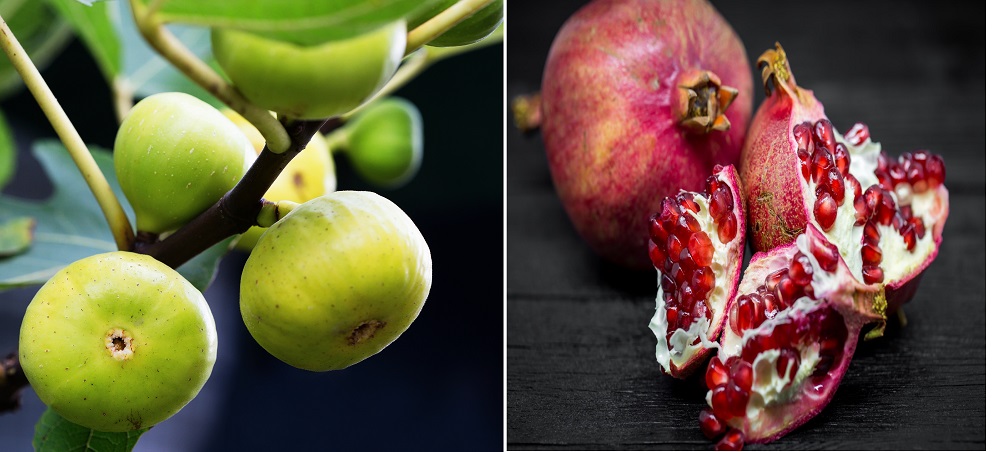As we emerge from the pandemic with renewed awareness of the importance of our own health and wellbeing, people all over the world are more concerned than ever about their lifestyle. As a result, weight management is now taking centre stage among consumers who slipped into poor dietary and lifestyle habits during lockdown. Here, nutritional supplements can play a key role and provide valuable support in the fight against obesity, when combined with regular exercise and a balanced nutritional intake, e.g. a Mediterranean diet. Such a diet is characterised by a high consumption of vegetables and fruit, extra virgin olive oil, whole grains, legumes and nuts. Evidence confirms that this type of eating pattern contributes to the reduction of visceral fat and other risk factors for cardiovascular and metabolic diseases, thanks to its high content of health-promoting polyphenols, carotenoids and phytosterols. Yet despite health recommendations, daily intake of large portions of seasonal fruit, vegetables and olive oil is rarely achievable. However, evidence-based food supplements from sustainable dietary sources provide a valuable integrative option, as market data confirms: Weight-management supplements increasingly use botanical and fruit ingredients that are proven both safe and efficacious. According to Innova Market Insights, these ingredients were the fastest growing in the category globally between 2017 and 2021.[1]

If current patterns continue, by 2035, 51% of the world’s population will be overweight or obese, according to the World Obesity Federation. (Photo © PublicDomain Pictures Pixabay)
Natural solutions
Botanical compounds that are getting increasing scientific attention for weight management include abscisic acid (ABA), a phytohormone naturally present in fruits such as figs, and polyphenols – especially punicalagin and urolithin from pomegranate. Inspired by the health benefits of the Mediterranean diet, botanical ingredients supplier Euromed has developed Pomanox®, a natural pomegranate extract standardised to 30% punicalagins, and ABAlife®, a fig extract standardised to various concentrations of ABA. These ingredients have been shown in clinical studies to regulate blood glucose and insulin levels, improve cardiovascular and metabolic function, reduce inflammation and promote satiety and gut health, all of which are important for both weight management and overall health.
Multiple mechanisms
Pomegranate polyphenols can influence satiety signalling via hormones that affect hunger and fullness, suppress appetite and improve metabolic health by reducing insulin resistance, blood pressure and stress hormone levels. They can also increase adiponectin levels, which may affect fat metabolism and positively influence the gut microbiome and gut/brain axis through the modulation of satiety-related gut peptides. In a recently published clinical trial, Pomanox® intake led to significant increases in urinary total phenolics excretion and antioxidant capacity, along with reductions in salivary cortisol levels, blood pressure, body fat and fat mass, while lean body mass increased. These results confirm previous data, with the extract linked to a reduction in insulin resistance and salivary cortisol levels and cortisol/cortisone ratios.[2]The stress hormone cortisol can promote fat storage, increase muscle breakdown and disrupt sleep, which can also affect appetite regulation and metabolism. Finally, results of another study indicated that participants who consumed the pomegranate extract daily for 3 weeks felt less hungry, more satisfied and fuller compared to the placebo group.[3]

Figs contain abscisic acid (ABA), a phytohormone that can help in weight management. (Photo © MongPro I Shutterstock); Pomegranate polyphenols can influence satiety signalling via hormones that affect hunger and fullness, suppress appetite, and improve metabolic health by reducing insulin resistance, blood pressure and stress hormone levels (Photo: © pvproductions I Freepik) Source: Euromed
Moreover, the fig extract ABAlife® has been shown to regulate blood glucose and insulin levels, and lower the glycemic and insulinemic index of high glycemic index foods.[4] These effects can promote satiety, reduce cravings for high-sugar foods and support weight management.Furthermore, ABA has been shown to increase insulin sensitivity and glycemic control by modulating metabolic activity in skeletal muscle, which may have implications for weight management too.[5] ABA triggers cellular signalling that enhances glucose uptake and increases the expression and membrane translocation of a glucose transporter protein, thus improving glucose homeostasis. Abscisic acid has the ability to promote the browning of visceral fat, converting white adipose tissue (WAT) into brown adipose tissue (BAT). BAT plays a crucial role in generating heat through thermogenesis. In adult mammals, it also helps regulate energy balance by breaking down fatty acids (FA) and releasing the resulting energy as heat. Notably, studies have identified brown, fat-like cells, referred to as beige cells, within WAT. Increasing the presence of beige adipocytes in WAT has been shown to enhance overall energy expenditure and reduce the risk of obesity, and metabolic diseases resulting from a high-calorie diet[6]. Given the similarities in how it works, ABAlife® may offer potential benefits for weight management, with fewer side-effects than synthetic weight management drugs.
These innovations reflect a deeper understanding of the relationship between nutritional supplementation and weight management. They also offer a more comprehensive approach by targeting multiple mechanisms and providing pleiotropic benefits rather than just focusing on a single aspect of weight loss.
Huge potential
If current patterns continue, by 2035, 51% of the world’s population will be overweight or obese, according to the World Obesity Federation. With this in mind, coupled with the growth of the weight management category in recent years and consumer desire for holistic, gentle and scientifically-backed solutions, botanical extracts offer huge potential for dietary supplements. They will also play a significant role in weight management in the future. As research continues to uncover new ingredients and mechanisms for supporting healthy weight, supplements will remain a valuable component of a comprehensive weight-management strategy.
[1] Data from Innova Market Insights, Global, CAGR 2017-2021
[2] Al-Dujaili, E.A.S.; Casey, C.; Stockton, A. Antioxidant Properties and Beneficial Cardiovascular Effects of a Natural Extract of Pomegranate in Healthy Volunteers: A Randomized Preliminary Single-Blind Controlled Study. Antioxidants 2022, 11, 2124. https://doi.org/10.3390/antiox11112124
[3] Stockton, A.; Al-Dujaili, E.A.S. Effect of Pomegranate Extract Consumption on Satiety Parameters in Healthy Volunteers: A Preliminary Randomized Study. Foods 2022, 11, 2639. https://doi.org/10.3390/foods11172639
[4] Atkinson, F.S.; Villar, A.; Mulà, A.; Zangara, A.; Risco, E.; Smidt, C.R.; Hontecillas, R.; Leber, A.; Bassaganya-Riera, J. Abscisic Acid Standardized Fig (Ficus carica) Extracts Ameliorate Postprandial Glycemic and Insulinemic Responses in Healthy Adults. Nutrients 2019, 11, 1757. https://doi.org/10.3390/nu11081757
[5] Leber, A., Hontecillas, R., Tubau-Juni, N. et al. Abscisic acid enriched fig extract promotes insulin sensitivity by decreasing systemic inflammation and activating LANCL2 in skeletal muscle. Sci Rep 10, 10463 (2020). https://doi.org/10.1038/s41598-020-67300-2
[6] Sturla, L., Mannino, E., Scarfì, S., Bruzzone, S., Magnone, M., Sociali, G., et al., 2017. Abscisic acid enhances glucose disposal and induces brown fat activity in adipocytes in vitro and in vivo. Biochimica et Biophysica Acta 1862:131e144.

 iConnectHub
iConnectHub
 Login/Register
Login/Register Supplier Login
Supplier Login



























